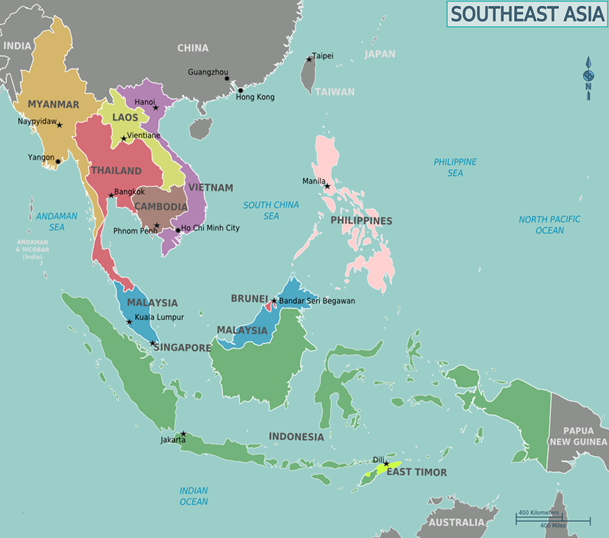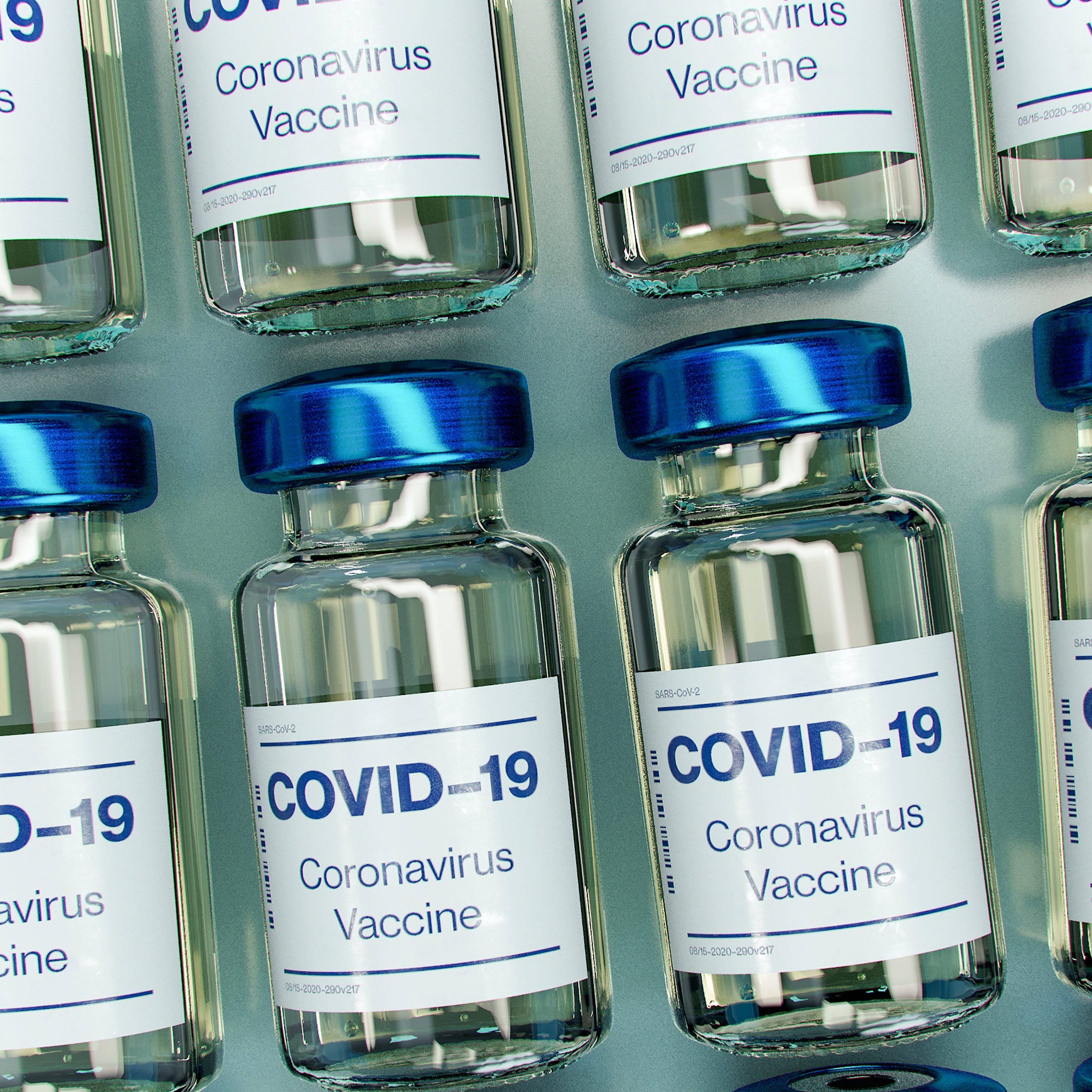In the long run, pushing vaccine diplomacy will be good for the US’ economic activities in the region. The new wave of COVID-19 has disrupted economic activities in Southeast Asia, as countries have to implement measures to prevent the pandemic. Apparently, American firms are also being negatively affected by COVID-19, especially manufacturing ones. Washington thus must speed up its vaccine diplomacy with the region to bring back its normalcy, writes Phuong Pham
_______________________________________________
Under the Biden administration, Southeast Asia matters enormously, given its unique characteristics and China’s rising assertiveness in this region. Recently, the Delta variant of COVID-19 took Southeast Asian countries by storm, when these countries, even ones used to being successful in containing the pandemic such as Vietnam, Thailand or Singapore, are suffering a new wave. This maybe attributed not only to the policy pitfalls but also to the vaccine shortage, which is arguably a more important cause for the surge in new cases and deaths in Southeast Asia. Against this backdrop, it is urgent for the US to employ vaccine diplomacy, regaining its confidence in the region.
The current regional landscape entails Washington to step up its vaccine diplomacy. Four years of Trump’s presidency had significantly tarnished the US’ image in Southeast Asia. His isolationist policy raised skepticism among regional countries on Washington’s commitment, and gave China a good opportunity to become more influential in Southeast Asia. Granted, the US is still the most powerful actor in the region, but its legitimacy has declined, while China is believed to enjoy more influence than the US, and this will still be the case in the next 10 years. President Joe Biden is clearly aware of a risk of losing Southeast Asia to China, and he has been attempting to win back the region by re-engaging in multilateral institutions and diplomacy. Nevertheless, not everything has yet been up to Southeast Asian countries’ expectation. There has been no clear Southeast Asian agenda since Biden took office, from economic, security to political. Although there are plans that can be relevant to Southeast Asia, for example the “Build Back Better World” (B3W) or giving vaccines for developing countries, they are insubstantial. Southeast Asian countries are still grappling with COVID-19, and China is gaining more influence when it is the major vaccine provider for the whole region.

These unfavorable conditions necessitate the US to take more steps. At first glance, vaccine diplomacy makes the US’ image better among Southeast Asian countries. Due to the highly infectious characteristic of this Delta variant, vaccination is the only way to prevent its spread. Previously effective measures such as lockdown, mass testing or mandatory quarantine are bringing less outcomes now, as evidenced by the increasing number of new cases in once “successful countries” associated with the above-mentioned measures like Taiwan, Vietnam, South Korea or Japan. That said, there is a huge demand for the vaccine right now, especially in Southeast Asia. The US is arguably known for producing highest-quality vaccines in the world, thus is able to provide massive amounts of the vaccine to countries in Southeast Asia via its vaccine initiative. If the US can push its vaccine diplomacy within the region, it will enjoy a more benign image among regional countries, paving the way for Washington to engage further with Southeast Asian partners.
Additionally, fulfilling the region’s vaccine need brings both short-term and long-term benefits for the US. In the short run, becoming the main vaccine provider for Southeast Asian countries can enable the US to re-establish its political influence. As mentioned previously, Chinese vaccines consist of the majority of given doses among Southeast Asian countries, posing a challenge for Washington to come back to the region. As such, it must compete directly with China in supplying vaccines for Southeast Asian states to reduce their reliance on Chinese vaccines, which lays a foundation for the US to forge its partnership with these countries and push them from Beijing’s sphere of influence. More importantly, in the long run, pushing the vaccine diplomacy will be good for the US’ economic activities in the region. The new wave of COVID-19 has disrupted economic activities in Southeast Asia, as countries have to implement measures to prevent the pandemic. Apparently, American firms are also being negatively affected by COVID-19, especially manufacturing ones. Washington thus must speed up its vaccine diplomacy with the region to bring back its normalcy. Southeast Asia is a highly lucrative market with more than 600 million people and a combined GDP of 3 trillions USD. To this extent, when the US can help regional countries handle the pandemic with American vaccines, it will be highly welcome to enter their markets, and Southeast Asia at that time will mostly be free of COVID-19. In other words, giving vaccines to Southeast Asian countries is economically beneficial for the US in the future.

The current regional landscape is favorable to the US’ vaccine diplomacy as well. Around the world, Chinese vaccines are being questioned regarding their effectiveness, especially with the new and more infectious Delta variant. Southeast Asia is not the exception. The return of this new wave, even in those countries that have received a massive amount of Chinese vaccines such as Cambodia, Malaysia and Indonesia, has cast doubt on their reliability. Looking further, political disputes with China are also making Southeast Asian states think twice before receiving Beijing’s vaccine donations. Specifically, Vietnam, the Philippines, Brunei and Malaysia are involved in South China Sea disputes with China, thus are always wary of China’s behavior in the region. Understandably, these countries, and to a larger extent the whole region, are avoiding being highly dependent on China’s vaccine supply, as it would give China substantial leverage in the South China Sea, which is a great threat to all Southeast Asian states. All of these factors incentivise the region to seek other, alternative sources of vaccines to escape from the crisis, and the American, or Western vaccines more generally, are perhaps the best ones for regional countries. Indeed, the US and some Western countries, which once were seriously hit by the COVID-19, are now gradually recovering and re-opening, thanks to their vaccines, contrary to Southeast Asian countries. Moreover, these countries are turning to Western vaccines, implying that American vaccines will be highly welcome in the region. As such, vaccine diplomacy will reward Washington in a foreseeable future with its improving image among Southeast Asian countries’ eyes.
The bottom line is, given the new COVID-19’s outbreak in Southeast Asia and the interests of both regional countries and the US, they are seeing eye-to-eye about how to eradicate the pandemic. Hence, it behooves the US to push its vaccine diplomacy further in the region. This strategy will not only help the US in geopolitical competition with China, but also create a conducive environment for its economic activities, first by making Southeast Asia safer for American investors, then paving the way for Washington’s future initiatives in the region.
References:
Emont, J. (2021) Hit Hard by Covid-19, Southeast Asian Countries Turn to Western Vaccines. Wall Street Journal. https://www.wsj.com/articles/hit-hard-by-covid-19-southeast-asian-countries-turn-to-western-vaccines-11626451122
Marston, H (2020) The COVID-19 pandemic pulls at the seams of Southeast Asia. East Asia Forum. www.eastasiaforum.org/2020/05/09/the-covid-19-pandemic-pulls-at-the-seams-of-southeast-asia/
Maude, R (2021) Southeast Asia and COVID-19 Vaccines Explained. Southeast Asia and COVID-19: Asia Society Policy Institute. https://southeastasiacovid.asiasociety.org/southeast-asia-and-covid-19-vaccines-explained/
Panda, A (2020) Survey: China Gaining Influence Over US in Southeast Asia, With Likely Long-term Consequences. The Diplomat. https://thediplomat.com/2020/06/survey-china-gaining-influence-over-us-in-southeast-asia-with-likely-long-term-consequences/
Pham, P. (2021) Southeast Asia Vital to the G7’s “Build Back Better World” Initiative. Geopolitical Monitor. https://www.geopoliticalmonitor.com/southeast-asia-vital-to-the-g7s-build-back-better-world-initiative/
Schuster-Bruce, C. (2021) How much protection COVID-19 vaccines give you against the Delta variant, according to the best available data. Business Insider. https://www.businessinsider.com/delta-variant-covid-vaccine-effectiveness-protection-pfizer-moderna-astrazeneca-2021-7
Tani, S. (2021) Chinese vaccines: Sinovac needs outweigh doubts in Indonesia. Nikkei Asia. https://asia.nikkei.com/Spotlight/Coronavirus/COVID-vaccines/Chinese-vaccines-Sinovac-needs-outweigh-doubts-in-Indonesia
Zaini, K. (2021) China’s Vaccine Diplomacy in Southeast Asia – A Mixed Record. ISEAS Perspective (86). https://www.iseas.edu.sg/wp-content/uploads/2021/06/ISEAS_Perspective_2021_86.pdf
*The cover image is by Daniel Schludi on Unsplash.
* The views expressed in the blog are those of the authors alone. They do not reflect the position of the Saw Swee Hock Southeast Asia Centre, nor that of the London School of Economics and Political Science.





